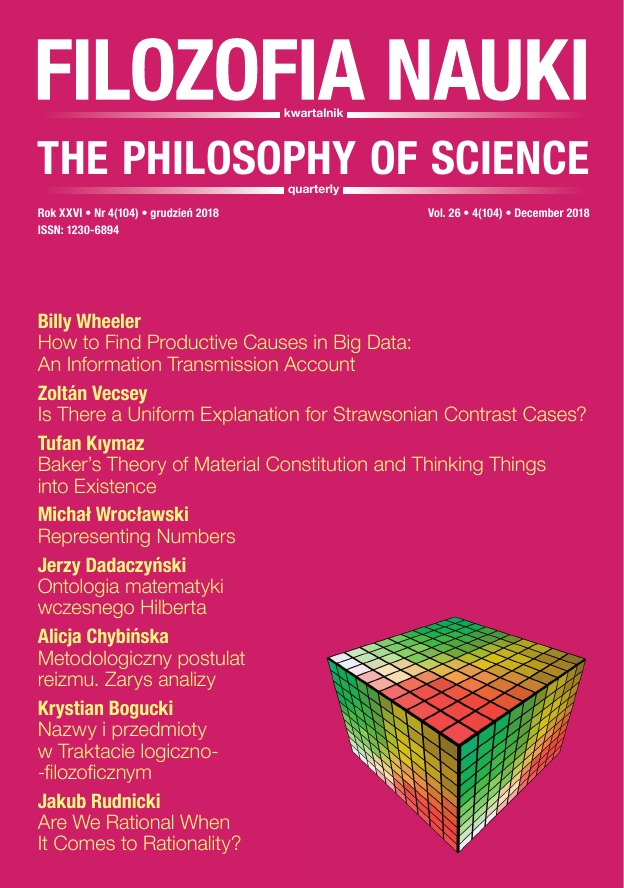Is There a Uniform Explanation for Strawsonian Contrast Cases?
Is There a Uniform Explanation for Strawsonian Contrast Cases?
Author(s): Zoltán VecseySubject(s): Special Branches of Philosophy
Published by: Uniwersytet Warszawski - Wydział Filozofii i Socjologii, Instytut Filozofii
Keywords: reference-failure; definite description; presupposition; topicality; intuitive truth-value judgment
Summary/Abstract: Strawson once observed that sentences containing non-referring definite descriptions tend to elicit different types of intuitive responses from language users. While some of these sentences elicit a sense of squeamishness, others elicit a robust sense of falsity. Strawson explained this type of response difference in terms of presupposition and topicality. In the last decades, Strawson’s approach has been often criticized on the ground that it cannot provide a uniform explanation for all possible occurrences of non-referring definites. In this paper, I examine two recent Strawsoninspired projects and argue that they also fall short of providing a uniform explanation of the data. In the final section, I briefly delineate an alternative approach, which seems to have greater explanatory power than its rivals.
Journal: Filozofia Nauki
- Issue Year: 26/2018
- Issue No: 4 (104)
- Page Range: 29-47
- Page Count: 19
- Language: English

